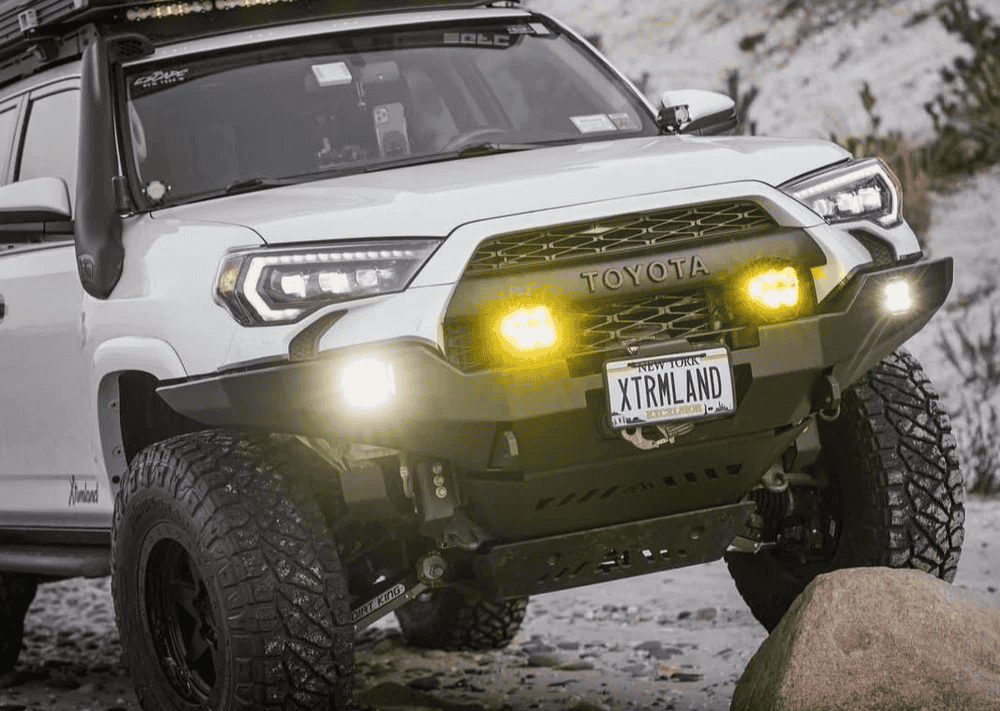Overland Vehicles

An eco conscious overlander is a traveler who treats every mile and campsite like borrowed space. The goal is simple. Explore farther while leaving less behind. That starts with route planning that favors consolidated travel days over scattered short hops, steady speeds over stop and go, and open roads that avoid sensitive habitats during wet seasons.
Light weight is the secret sauce. Every added pound demands more throttle and more braking. Pare down duplicates, pack multi use items, and balance loads so tires roll with less resistance. Run correct tire pressures for the terrain to reduce erosion and improve traction without tearing up the trail.
Power choices matter. Rely on solar first with a right sized battery bank and efficient appliances so you can skip noisy generators. Modern lithium iron phosphate batteries offer long cycle life and stable discharge for camp fridges, induction cooktops, and work devices. Pair that with an MPPT charge controller and alternator charging to stay topped off on the move.
Etiquette is non negotiable. Stay on designated routes, yield to hikers and bikers, and keep engine noise low near camp. Fire awareness should guide your cooking methods and your camp layout, especially during dry spells. The cleaner you travel, the more welcome overlanders remain on public land.
A streamlined kit beats a sprawling gear closet. Choose a sleep system that packs small and sets up fast, a single versatile cook setup, and an emergency repair roll that actually covers your platform. Remove roof add ons you do not use, since external cargo increases drag. By shaving mass high and aft, you gain stability, better braking, and fewer suspension complaints.
Start with an energy audit. List each device, its watts, and daily runtime to size solar and storage accurately. Favor fridges with thick insulation, LEDs everywhere, and fans with low amp draw. Cook with induction or clean burning stoves to minimize soot and micro debris. Shore power is helpful for pre trip charging, but the goal is to be self sustaining in the field without idling.
Materials and layout influence both efficiency and longevity. Insulation that manages heat and moisture trims heater and air conditioning demand. Wool, cork, and closed cell foam each bring different strengths and can reduce condensation when applied correctly. Durable surfaces that clean fast prevent harsh chemical use in camp. Thoughtful airflow keeps indoor air fresh so you run fans at lower speeds.
Water is heavy, so carry only what you need for the trip and resupply where appropriate. Use low flow fixtures, foot pumps, and spray heads that stretch each liter. Capture grey water when required and dispose of it away from waterways according to local rules. If you prefer a cassette or composting toilet, ensure you follow disposal regulations to the letter.
Tires and suspension choices influence both tread wear and ground impact. Aggressive treads have their place in mud and snow, but on mixed routes a moderate all terrain can lower rolling resistance while maintaining grip. Align often, torque lugs properly, and avoid lift heights that add drag without functional gain.
Think of tires as rolling budgets. Load rating and pressure drive heat, wear, and fuel use. Match tire size to the real world load and terrain you run most. For suspension, aim for controlled damping with travel you can use, not just height. This keeps tires planted, reduces trail spin, and protects surfaces. A balanced setup is smoother for passengers and easier on the landscape.
External gear is convenient but expensive in wind. Keep heavy items inside and low. If you need a roof rack, choose fairings and store only what cannot fit inside. Smooth undersides and tidy wiring under the body can also reduce drag and snag points in brush.
Your practices in camp are where ethics meet reality. Pick durable surfaces for tents or awnings, keep at least two hundred feet from water sources when possible, and respect quiet hours. Use light discipline with warm color temperatures that preserve night vision and minimize wildlife disruption.
If your current setup makes it hard to camp cleanly and travel quietly, rethink the system rather than piling on more parts. Efficient power, reliable storage, and materials that clean fast are not luxuries. They are what make sustainable travel repeatable.
When you are ready to translate these principles into hardware, explore our overland rigs to see how capable platforms can be optimized for quiet power and low impact travel. For tailored equipment and layout planning, our custom overland upfit process aligns power demands, storage, and ride quality with real use. Curious about the shop and the people behind the work. Learn more at why choose OZK Customs.
You choose the routes. We make sure your rig makes the most of every watt and every drop. Visit us in Fayetteville to talk through power systems, materials, and ride setups that protect the places you love while taking you farther.
Ready to build a cleaner, quieter, more capable rig? Our team in Fayetteville designs efficient power, smart storage, and materials that last. Share your goals and we will map a sustainable path from concept to keys.
ADDRESS:
6159 E Huntsville Rd, Fayetteville, AR 72701
PHONE:
(479) 326-9200
EMAIL:
info@ozkvans.com